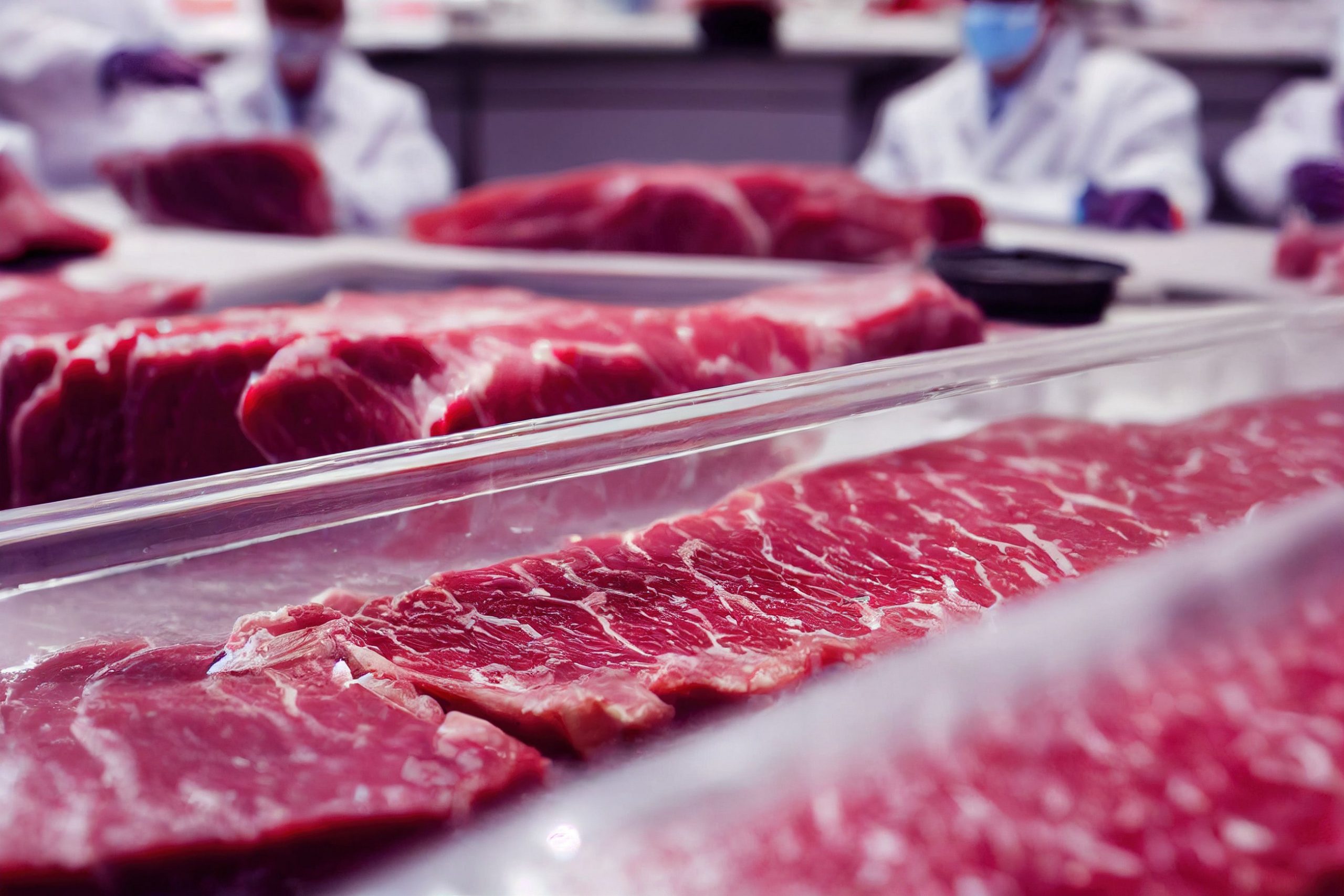
Meat export: the complete guide for entrepreneurs
If you are a meat entrepreneur and are considering expanding your horizons beyond borders, this article is for you.
In this complete guide, we’ll explore everything you need to know about exporting meat, simply and affordably, to help you get started in this exciting international market.
If you need legal assistance from our team, please message us on WhatsApp.
Author: Gustavo Tenório Campos Semaan
Understanding the international meat market
For any entrepreneur who wants to enter the international meat market, it’s essential to understand the dynamics and peculiarities of this sector. After all, exporting meat is not just about selling products across borders, but involves several factors that directly impact the success of the business.
First of all, it is important to know the preferences and demands of the different markets. Each country has its particularities regarding meat consumption, whether in terms of cuts, types of meat, or even cultural and religious issues.
For example, some countries have a preference for high-quality beef, while others prefer pork or poultry.
Therefore, it’s essential to identify the markets that have a demand aligned with the products that your company offers.
In addition, health regulations and requirements are extremely important in the international meat trade. Each country has its norms and standards to ensure food safety and the quality of imported products.
It’s essential to know and comply with all these regulations, from the production to the process of packaging and labeling of products.
Another crucial aspect is to understand the competition in the international market. There are numerous meat companies around the world competing for the preference of foreign consumers.
Knowing the competitors, their marketing strategies, prices, and differentials is essential to position your company competitively.
Finally, it is essential to keep up with trends and changes in the international meat market. Consumption and buying patterns are always evolving, and it’s important to adapt to these changes.
For example, there is a growing demand for organic, sustainable, and ethically produced meat. Staying aware of these trends can be an opportunity to differentiate your company and conquer new markets.
By understanding the international meat market, its particularities, competition, and consumer demands, you will be prepared to make informed and strategic decisions.
Requirements and regulations for meat exports
If you are thinking of exporting meat, it is important to know the requirements and regulations established by the Brazilian authorities.
One of the main regulations is the Federal Inspection (SIF), carried out by the Ministry of Agriculture, Livestock, and Supply (MAPA).
The SIF is responsible for supervising and certifying meat-producing establishments, ensuring that they comply with good production and hygiene practices.
Before exporting, it is necessary to obtain registration in the SIF and ensure that your company meets all the required requirements.
In addition, it’s essential to follow animal traceability standards. This means that it is necessary to keep detailed records of the entire production process, from the creation of the animal to the slaughter and packaging of the final product.
This makes it possible to trace the origin of the meat, ensuring its quality and safety for consumers.
Another important point is health regulations. Brazil has strict standards for the control of animal diseases, such as foot-and-mouth disease and avian influenza.
Before exporting, it is necessary to certify that the herd is free of these diseases and follow the prevention protocols established by MAPA.
In addition, each importing country may have its additional requirements. Therefore, it is essential to research and understand the specific standards of each target market.
In short, the export of meat requires compliance with specific requirements and regulations. Ensuring compliance with the SIF, adopting animal traceability practices, following sanitary standards, and being aware of the requirements of importing countries are essential steps to ensure export success and the conquest of international markets.
Preparing your company for meat export
When deciding to expand your business for the export of meat, it is critical to prepare your company properly.
Firstly, make sure that your company is registered and in compliance with the regulations of the Ministry of Agriculture, Livestock and Supply (MAPA).
Registration with the Federal Inspection Service (SIF) is essential to ensure the quality and safety of exported products. Make sure you comply with all SIF requirements and procedures, from production to packaging and labeling.
In addition, it’s important to ensure the traceability of the product. Keep detailed records of the entire production process, from the origin of the animals to the slaughter and processing of the meat.
This includes information about food, medications administered, and hygiene controls. Traceability is essential to ensure product quality and to meet the requirements of importing countries.
Ensure that your company complies with health regulations. Be aware of the mandatory vaccinations and prevention protocols established by MAPA.
Finally, research and understand the specific requirements of importing countries.
Each market may have additional regulations, labeling, packaging, or specific certifications. Be prepared to meet these requirements and ensure that your company can export to your chosen countries.
By preparing your company properly for the export of meat, you will be increasing your chances of success in the international market.
Taxation for the export of meat from Brazil:
In Brazil, the export of meat is subject to specific taxation.
Here are some important aspects related to taxation on meat exports:
- Export Tax (IE): The Export Tax is a federal tax levied on the value of exported goods. However, fresh and frozen beef, as well as other animal products, are exempt from this tax.2. Social
- Integration Program (PIS) and Contribution to the Financing of Social Security (COFINS): Meat exports are exempt from the incidence of PIS and COFINS, which are federal taxes levied on the gross revenue of companies.
- ICMS: The Tax on the Circulation of Goods and Services (ICMS) is a state tax applied to the circulation of goods. However, exports are exempt from ICMS, according to a constitutional determination that prohibits the incidence of this tax on export operations.
- Special Customs Regime: To encourage exports, Brazil offers special customs regimes, such as drawbacks. These regimes allow the suspension or exemption of taxes on inputs used in the production of goods intended for export.
It’s important to note that the above information is general and may vary depending on the particularities of each situation and the current legislation.
It’s recommended to consult an accountant or law firm specializing in foreign trade for more accurate and up-to-date information on the specific taxation of meat exports in Brazil.
Essential documentation for export
In Brazil, to export meat internationally, it is necessary to obtain the following health and export certificates:
- International Animal Health Certificate (CZI): It is a document issued by the Ministry of Agriculture, Livestock, and Supply (MAPA) that attests to the animal health and quality of products of animal origin intended for export.
- International Phytosanitary Certificate (IFC): It is issued by MAPA to ensure that cargoes of products of plant origin are free of pests and diseases that may affect the agriculture of the importing country.
- Certificate of Origin: Document issued by authorized entities, such as chambers of commerce, attesting to the country of origin of the exported products.
- Registration with the Federal Inspection Service (SIF): It is mandatory for all companies wishing to export meat. The SIF ensures that the company complies with the quality and hygiene standards established by MAPA.
In addition to these certificates, it’s important to follow the Good Manufacturing Practices (GMP) and Self-Control Programs (PAC) defined by MAPA. These programs aim to ensure the quality and safety of products of animal origin.
It’s worth mentioning that the specific requirements may vary according to the importing country. Therefore, it is essential to conduct thorough research on the sanitary and export requirements of each target market before starting the meat export process.
If you need legal assistance from our team, please message us on WhatsApp.

